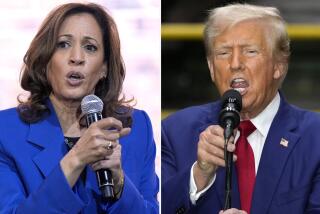US West Exec Tells of Cable TV Offer
- Share via
WILMINGTON, Del. — Time Warner Inc. offered US West Inc. an 80% stake in their jointly owned cable television systems in exchange for regaining complete control of a shared entertainment operation, an executive of US West testified Friday.
But Charles Lillis, president and chief executive of US West Media Group, said US West rejected the proposal because Time Warner also wanted cash in the deal and it was more money than US West felt was justified.
Lillis did not specify in his testimony how much cash Time Warner wanted.
It was the first time an official of either firm has publicly discussed proposals under discussion privately for restructuring their cable and filmed entertainment venture.
The testimony came on the third day of a Chancery Court trial in which US West is trying to block Time Warner’s purchase of Turner Broadcasting System Inc., the Atlanta-based owner of Cable News Network.
Lillis also testified that top Time Warner officials were told in advance of agreeing to the Turner deal that the phone company objected to it and would sue to block it.
US West, a regional phone company based in Englewood, Colo., invested $2.5 billion in 1993 for a 25% stake in Time Warner Entertainment, which owns Warner Bros. studios, the HBO pay-TV service and Time Warner cable system holdings serving about 7.2 million customers.
Time Warner owns a 75% stake in the partnership, but wants to restructure it to separate the entertainment properties from the cable holdings.
US West said its deal with Time Warner prohibits the media-entertainment conglomerate from buying properties such as Turner on its own that would compete with the partnership.
Turner and the partnership each own cable networks and make movies and television shows.
Lillis said Time Warner and US West had been discussing how to restructure the partnership since early 1995. But he said Time Warner did not make a specific proposal until August. He said US West found the concept acceptable but did not like the financial terms, which he said undervalued the entertainment properties.
More to Read
The biggest entertainment stories
Get our big stories about Hollywood, film, television, music, arts, culture and more right in your inbox as soon as they publish.
You may occasionally receive promotional content from the Los Angeles Times.










